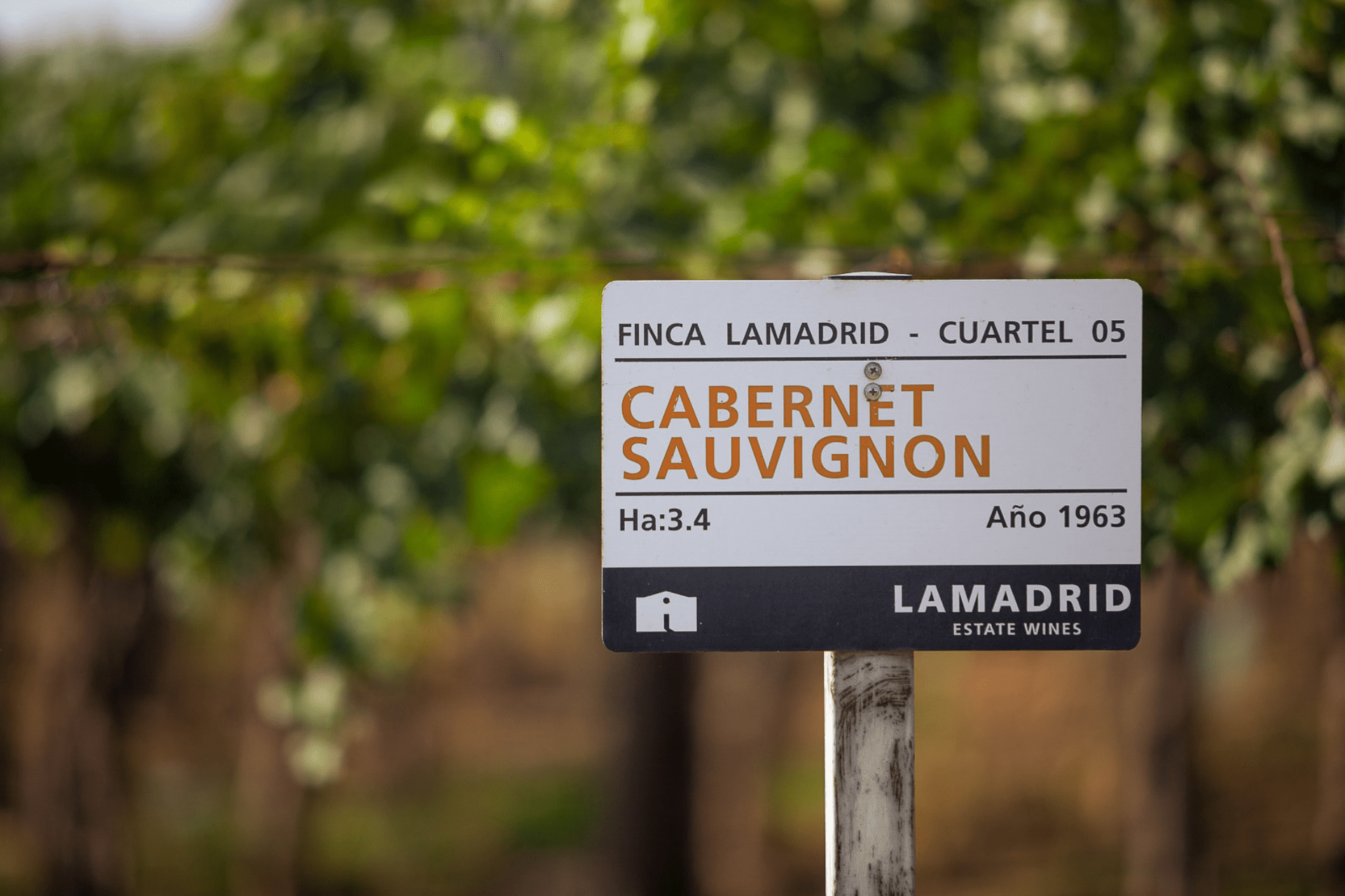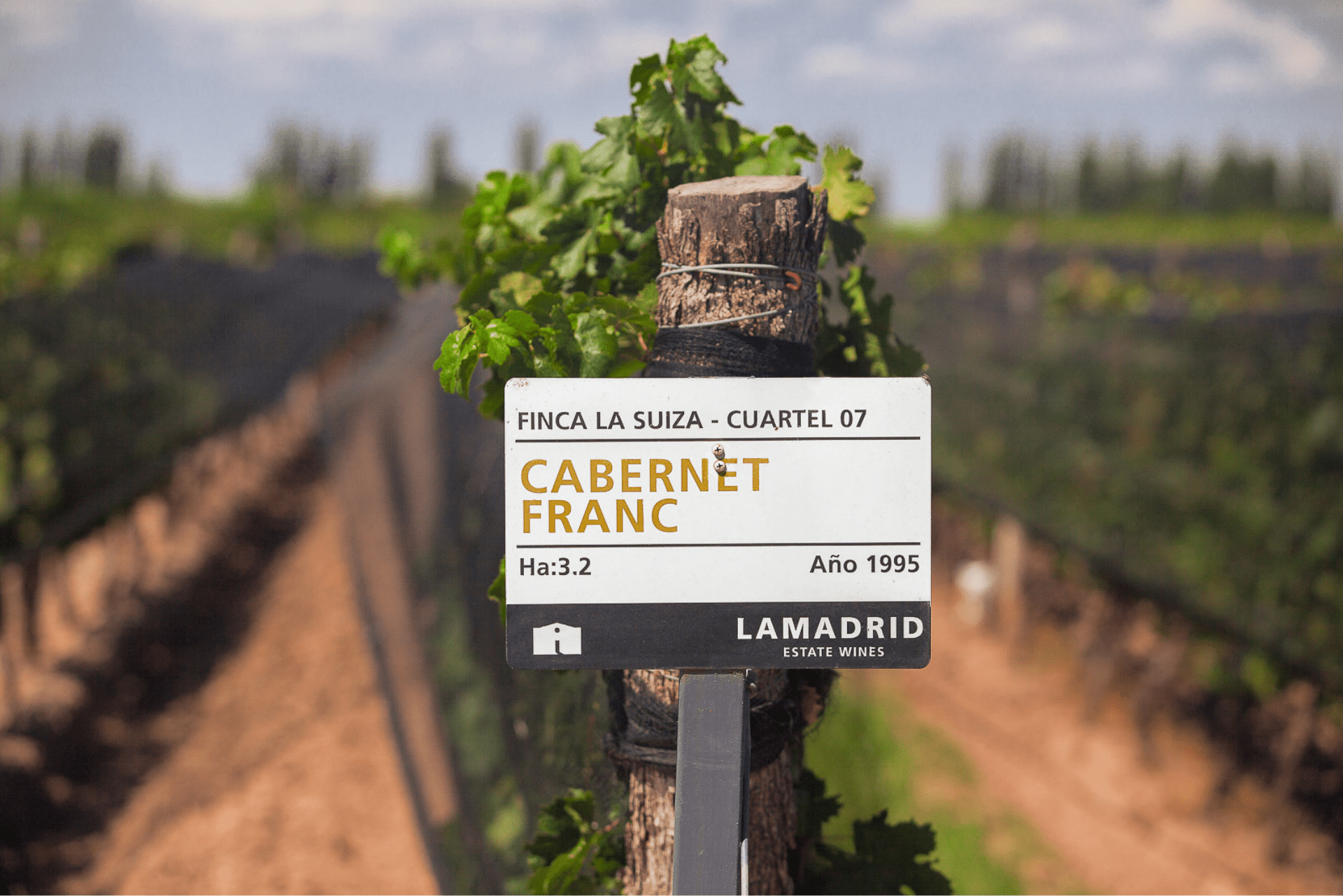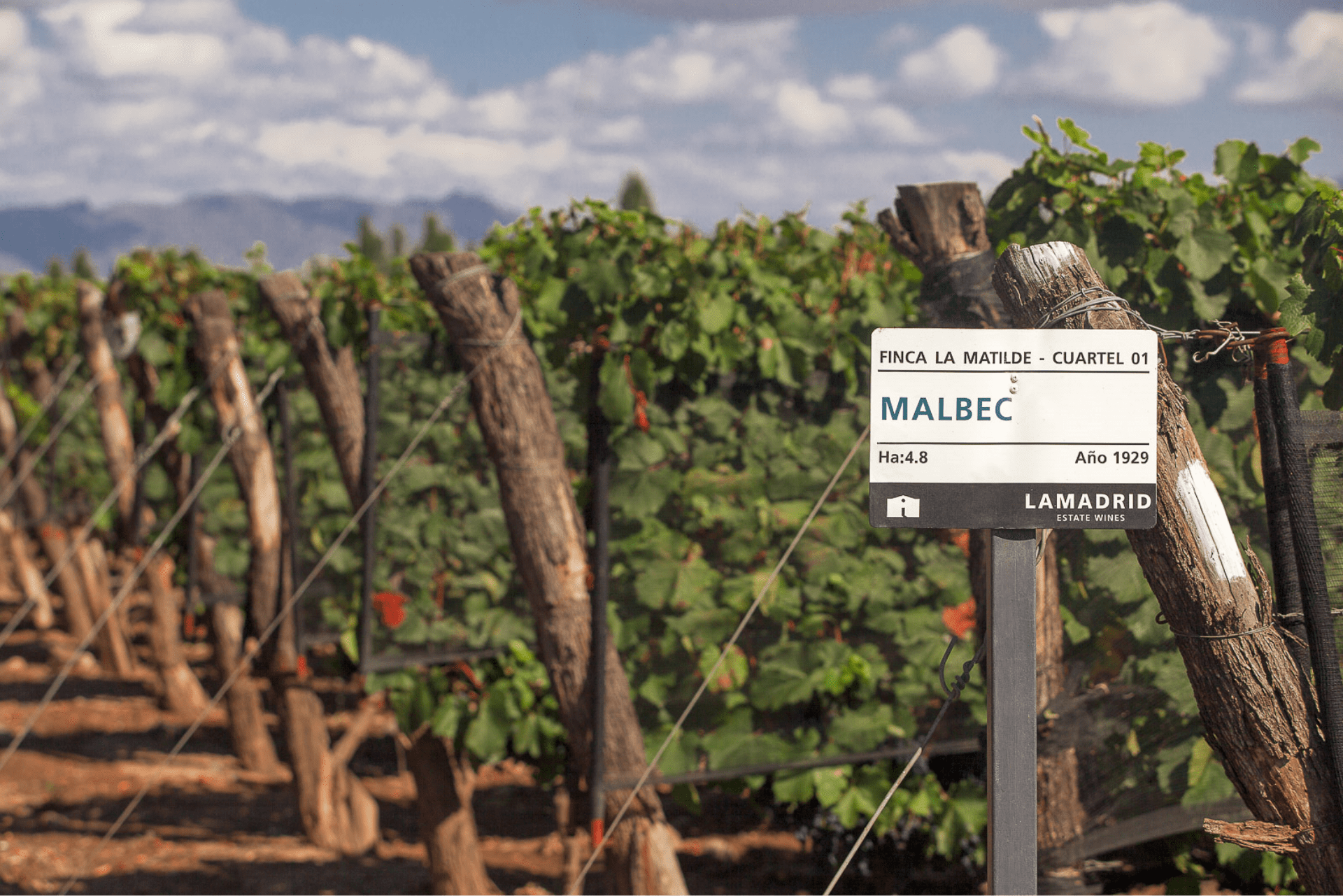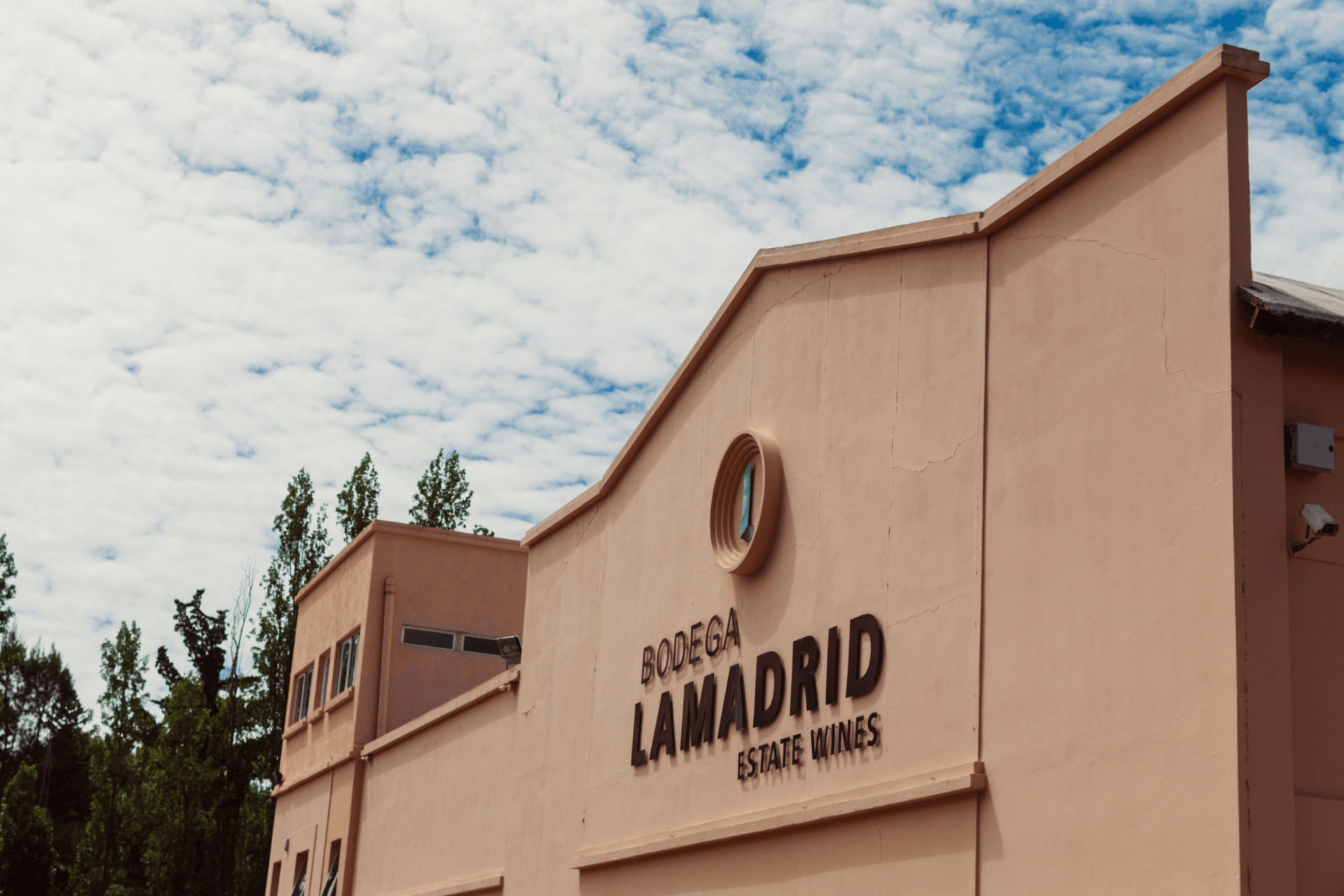
Lamadrid Estate
Denomination: Agrelo, Luján de Cuyo, Mendoza, Argentina.
Vineyard age: planted in 1963 and 1999.
Soil type: clay loam and sandy, stony loam.
Grape varieties planted: Malbec, Bonarda, Cabernet Sauvignon and Cabernet Franc.
Planted area: 150 acres (64 ha).
Vineyard formation system: Double Guyot.
Pruning season: from June to July 15.
Harvest season: from the end of March to the second half of April.
Harvest method: Hand-picked and transported in 17 kg containers.
Leaf removal season: December.
Irrigation system: drip irrigation since 2016.
Trellis: 7200 plants / ha.
Vineyard: 3300 plants / ha.

La Suiza Estate
Denomination: Agrelo, Luján de Cuyo, Mendoza, Argentina.
Vineyard age: planted in 1993, 1995, and 1998.
Soil type: silty loam and pebbles.
Grape varieties planted: Malbec 70%, Cabernet Franc 15%, and Cabernet Sauvignon 15%.
Planted area: 74 acres (28 ha).
Pruning season: from June / July 15.
Harvest season: After the second week of April.
Harvest method: Hand-picked and transported in 17 kg containers.
Leaf removal season: December.
Irrigation system: traditional flood system.
System formation of vineyards: For Malbec Double Guyot; for Cabernet Franc and Cabernet Sauvignon Phyton cord.
Trellis: 5500 plants / ha.

Matilde Estate
Denomination: Agrelo, Luján de Cuyo, Mendoza, Argentina.
Vineyard age: planted in 1929.
Soil type: clay loam and sandy, stony loam.
Grape varieties planted: 100% Malbec.
Planted area: 24 acres (10 ha).
Pruning season: from June / July 15.
Harvest season: After the second week of April.
Harvest method: Hand-picked and transported in 17 kg containers.
Leaf removal season: December.
Irrigation system: traditional flood system.
Vineyard formation system: Double Guyot.
Trellis: 7200 plants / ha.

Winery
Our winery is equipped with state-of-the-art technology that adds to traditional wine handling. Currently, we have concrete pools coated with epoxy, concrete eggs, stainless steel tanks, foudres, and oak barrels. The winery is functional to the terroir, its fruits, and the culture that the farms present as a natural production discourse.
